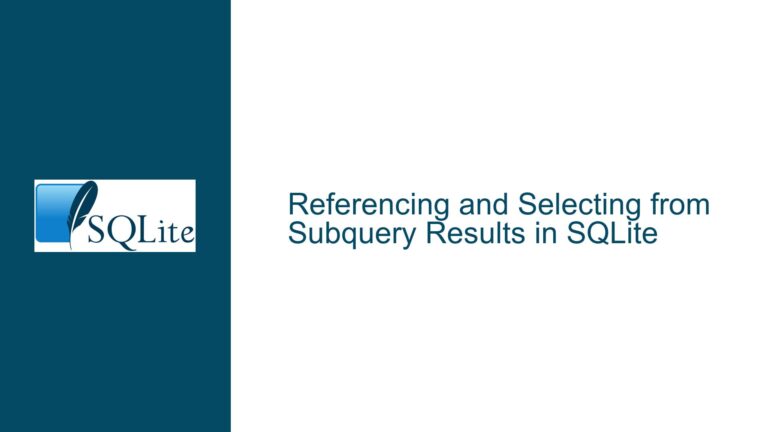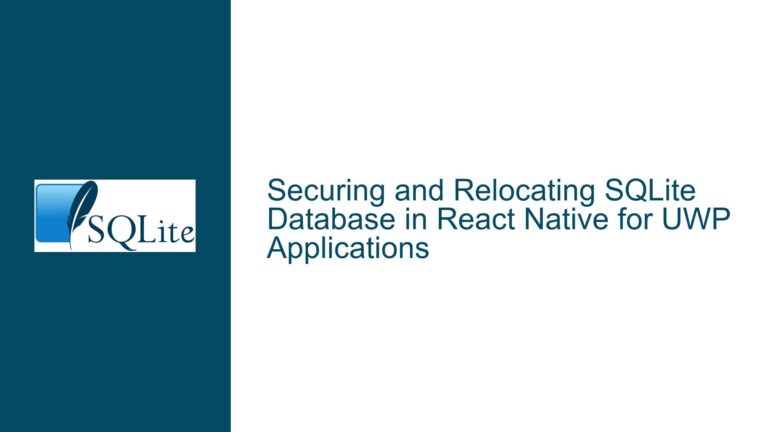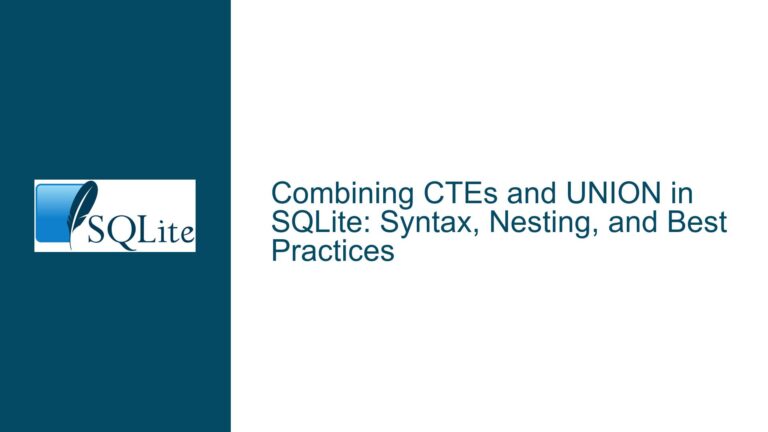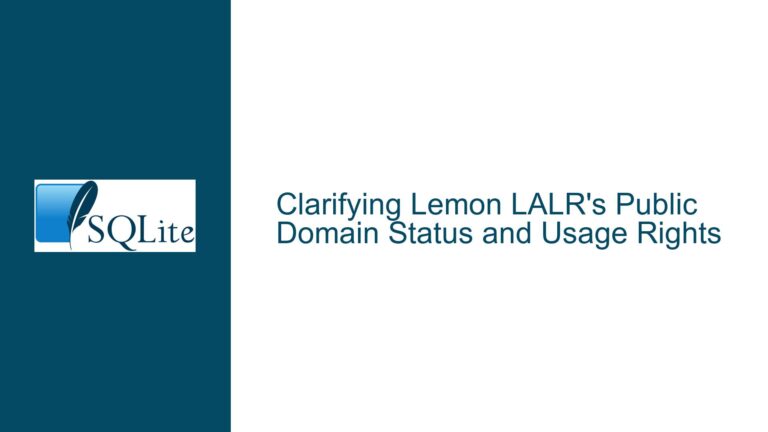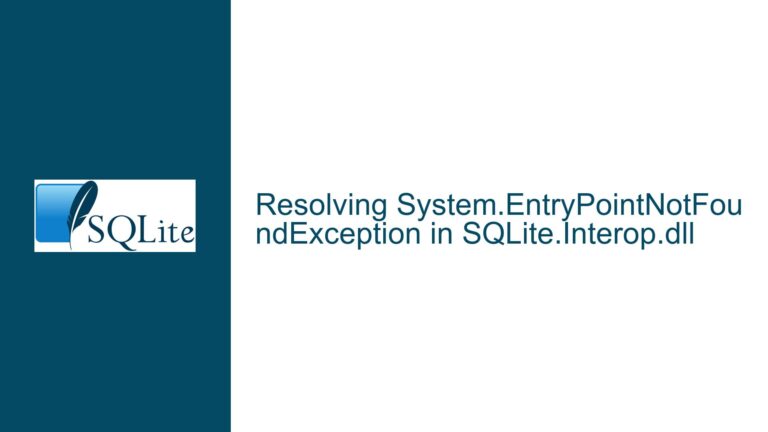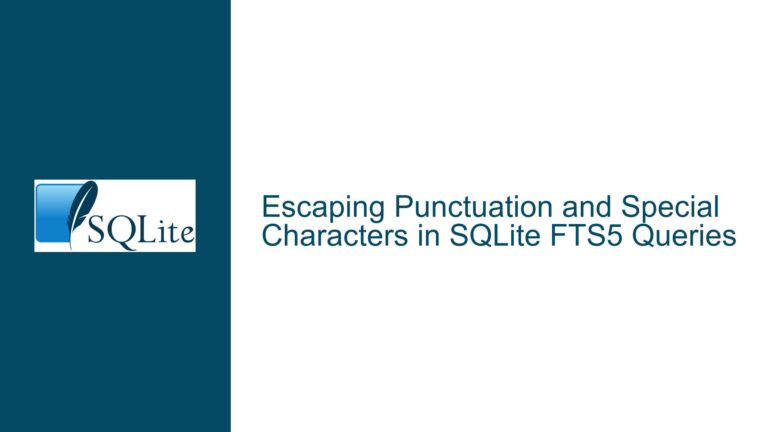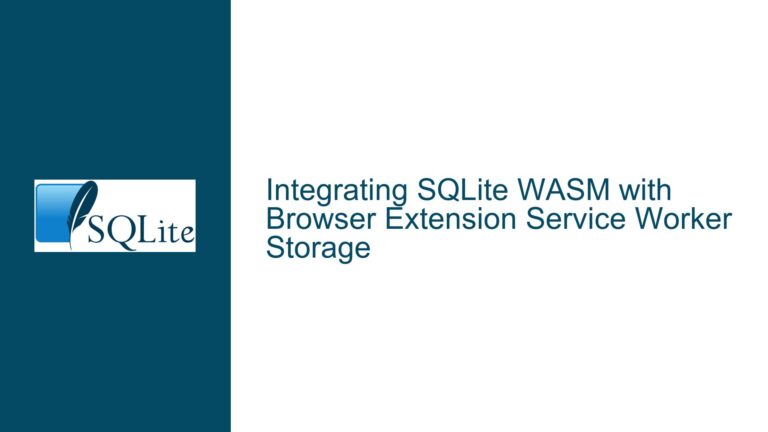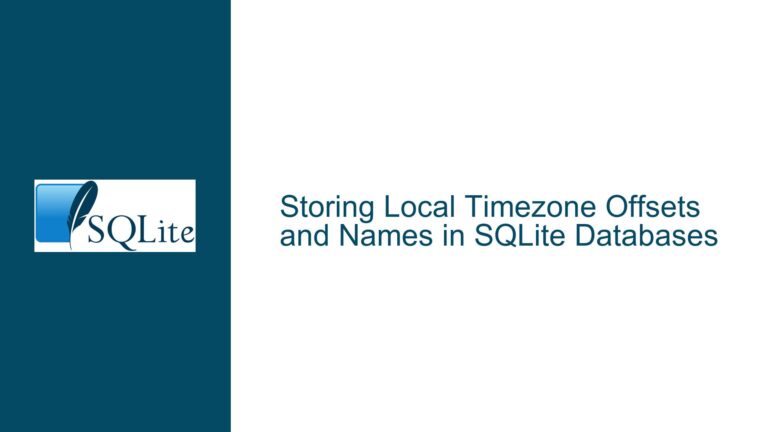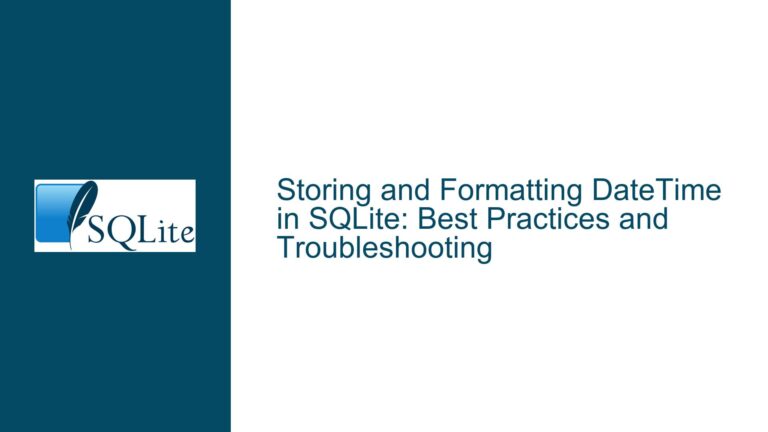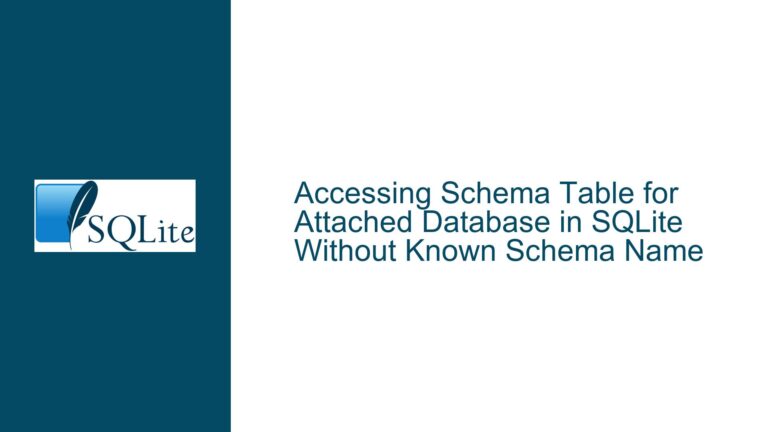Referencing and Selecting from Subquery Results in SQLite
Understanding Subquery Referencing and Column Selection in SQLite SQLite is a powerful, lightweight database engine that supports a wide range of SQL features, including subqueries, common table expressions (CTEs), and window functions. However, one common challenge developers face is referencing and selecting columns from subquery results, especially when attempting to access data from different rows…
